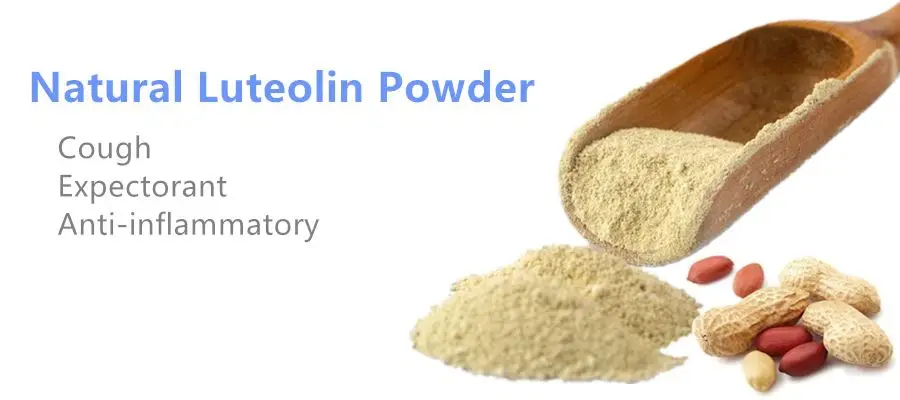How to Choose High-Quality Lutein Powder for Supplement Formulation?
Choosing high-quality lutein powder is crucial for successful supplement formulation. Lutein, a powerful antioxidant and carotenoid, plays a vital role in eye health and has gained significant popularity in the nutraceutical industry. When selecting lutein powder for your supplement formulations, it's essential to consider various factors to ensure you're using a premium product that will deliver optimal benefits to consumers. This comprehensive guide will explore the key aspects to evaluate when choosing lutein powder, including purity, source, stability, bioavailability, quality standards, and proper storage techniques. By understanding these crucial elements, supplement manufacturers can make informed decisions and create superior products that meet consumer expectations and regulatory requirements. Let's delve into the intricacies of selecting the best lutein powder for your supplement formulations.

Key Factors to Evaluate Purity, Source, and Stability of Lutein Powder
Assessing Purity Levels and Contaminant Testing
When evaluating lutein powder for supplement formulation, purity is paramount. High-quality lutein powder should have a purity level of at least 5%, with premium options offering 10% or even 20% lutein content. It's crucial to request and review certificates of analysis (COA) from suppliers to verify the purity levels and ensure that the product meets your specifications. Additionally, comprehensive contaminant testing should be conducted to check for heavy metals, pesticides, and microbial contamination. Reputable suppliers like Avans NutriHealth Co., Ltd. provide detailed COAs and conduct rigorous testing to ensure their lutein powder meets stringent quality standards. By prioritizing purity and contaminant testing, supplement manufacturers can guarantee the safety and efficacy of their final products.
Identifying Reliable Sources and Extraction Methods
The source and extraction method of lutein powder significantly impact its quality and effectiveness. High-quality lutein powder is typically derived from marigold flowers (Tagetes erecta), which are rich in lutein esters. Look for suppliers who use sustainable and ethical sourcing practices to ensure consistency and reliability in their raw materials. The extraction process should utilize clean, efficient methods that preserve the integrity of the lutein molecules. Supercritical CO2 extraction is considered one of the most effective techniques for obtaining pure lutein powder without the use of harmful solvents. When selecting a supplier, inquire about their sourcing practices and extraction methods to ensure you're getting a premium product. Avans NutriHealth Co., Ltd., for example, employs advanced extraction techniques to produce high-quality lutein powder with optimal bioavailability.
Evaluating Stability and Shelf Life
Stability is a critical factor in choosing lutein powder for supplement formulation. Lutein is sensitive to light, heat, and oxygen, which can lead to degradation and reduced efficacy over time. When selecting a lutein powder, consider products that have been stabilized through appropriate packaging and the addition of antioxidants. Look for suppliers who offer lutein powder in light-resistant, airtight containers and provide clear storage instructions. Additionally, inquire about the product's shelf life and any stability studies conducted by the manufacturer. High-quality lutein powder should maintain its potency for at least 24 months when stored properly. By choosing a stable lutein powder with a long shelf life, supplement manufacturers can ensure their products remain effective throughout their intended lifespan.
Natural vs. Synthetic Lutein Powder — Which Offers Better Bioavailability?
Comparing Natural and Synthetic Lutein Sources
When choosing lutein powder for supplement formulation, one of the primary considerations is whether to opt for natural or synthetic sources. Natural lutein powder is typically derived from marigold flowers and contains a mix of lutein esters, while synthetic lutein is chemically produced to mimic the molecular structure of natural lutein. Natural lutein powder often contains other beneficial carotenoids and phytonutrients that may enhance its overall effectiveness. On the other hand, synthetic lutein powder can offer consistent purity and may be more cost-effective. However, it's important to note that natural lutein powder is generally considered to have superior bioavailability and efficacy compared to its synthetic counterpart. When selecting lutein powder, consider the source and opt for high-quality natural options like those offered by Avans NutriHealth Co., Ltd. to ensure optimal bioavailability and effectiveness in your supplement formulations.
Assessing Bioavailability and Absorption Rates
Bioavailability is a crucial factor in determining the effectiveness of lutein powder in supplement formulations. Natural lutein powder typically demonstrates higher bioavailability compared to synthetic versions due to its esterified form and the presence of other synergistic compounds. Studies have shown that natural lutein from marigold flowers is more readily absorbed by the body and can accumulate in target tissues, such as the eyes, more effectively than synthetic lutein. When evaluating lutein powder options, look for products that have undergone bioavailability studies or have been formulated to enhance absorption. Some manufacturers incorporate delivery systems or combine lutein with other nutrients, such as healthy fats or zeaxanthin, to improve bioavailability. By choosing a lutein powder with high bioavailability, supplement formulators can ensure that their products deliver maximum benefits to consumers.
Considering Cost-Effectiveness and Long-Term Benefits
While synthetic lutein powder may initially appear more cost-effective, it's essential to consider the long-term benefits and overall value when selecting a lutein source for supplement formulation. Natural lutein powder, although potentially more expensive upfront, often provides superior bioavailability and efficacy, which can translate to better results for consumers. This improved performance can lead to increased customer satisfaction and loyalty, ultimately benefiting the supplement brand. Additionally, natural lutein powder's higher bioavailability means that lower doses may be required to achieve the desired effects, potentially offsetting the initial cost difference. When evaluating the cost-effectiveness of lutein powder options, consider factors such as bioavailability, required dosage, and potential consumer preferences for natural ingredients. By choosing a high-quality natural lutein powder, supplement manufacturers can create premium products that deliver optimal results and justify their value to consumers.
Quality Standards, Certifications, and Storage Tips for Optimal Supplement Formulation
Meeting Industry Standards and Regulatory Requirements
When selecting lutein powder for supplement formulation, it's crucial to ensure that the product meets or exceeds industry standards and regulatory requirements. Look for suppliers who adhere to Good Manufacturing Practices (GMP) and have obtained relevant certifications such as ISO, HACCP, and FSSC22000. These certifications demonstrate a commitment to quality and safety throughout the production process. Additionally, ensure that the lutein powder complies with regulatory standards set by agencies like the FDA and EFSA. Avans NutriHealth Co., Ltd., for example, holds multiple certifications, including ISO, USDA, HACCP, and FSSC22000, ensuring their lutein powder meets stringent quality standards. By choosing a lutein powder that meets these requirements, supplement manufacturers can ensure their products are safe, effective, and compliant with regulatory guidelines.
Verifying Third-Party Testing and Quality Assurance
Third-party testing and quality assurance are essential aspects of selecting high-quality lutein powder for supplement formulation. Reputable suppliers should provide comprehensive third-party test results that verify the purity, potency, and safety of their lutein powder. Look for suppliers who conduct regular batch testing and can provide detailed certificates of analysis (COA) for each lot. These COAs should include information on lutein content, heavy metals, microbial contamination, and other relevant parameters. Additionally, consider suppliers who have implemented robust quality assurance programs throughout their production process. This may include in-house testing facilities, rigorous quality control measures, and traceability systems. By verifying third-party testing and quality assurance practices, supplement manufacturers can have confidence in the lutein powder they choose for their formulations.
Proper Storage and Handling for Maintaining Potency
Proper storage and handling of lutein powder are crucial for maintaining its potency and effectiveness in supplement formulations. Lutein is sensitive to light, heat, and oxygen, which can lead to degradation over time. When selecting lutein powder, consider suppliers who provide clear storage guidelines and appropriate packaging to protect the product. Ideally, lutein powder should be stored in airtight, light-resistant containers in a cool, dry place. Some suppliers may offer special packaging options, such as nitrogen-flushed containers or individual sachets, to further protect the lutein from oxidation. It's also important to handle lutein powder carefully during the formulation process to minimize exposure to air and light. By following proper storage and handling practices, supplement manufacturers can ensure that their lutein powder retains its potency throughout the product's shelf life, delivering consistent benefits to consumers.
Conclusion
Choosing high-quality lutein powder is essential for creating effective and safe supplement formulations. By carefully evaluating factors such as purity, source, stability, bioavailability, and quality standards, manufacturers can select the best lutein powder for their products. Natural lutein powder, like that offered by Avans NutriHealth Co., Ltd., often provides superior bioavailability and efficacy compared to synthetic options. Adhering to industry standards, verifying third-party testing, and implementing proper storage practices are crucial steps in ensuring the quality and potency of lutein-based supplements. By prioritizing these factors, manufacturers can create premium products that meet consumer expectations and deliver optimal eye health benefits.
For high-quality lutein powder and expert support in supplement formulation, consider partnering with Avans NutriHealth Co., Ltd. As a leading manufacturer and supplier of plant extracts and nutritional supplements, we offer premium lutein powder derived from natural sources, backed by rigorous quality control and comprehensive certifications. Our team of experts is dedicated to providing personalized solutions and exceptional customer service to meet your specific formulation needs. To learn more about our lutein powder and other product offerings, please contact us at Lillian@avansnutri.com.
FAQ
Q: What is the recommended purity level for lutein powder in supplement formulations?
A: High-quality lutein powder should have a purity level of at least 5%, with premium options offering 10% or 20% lutein content.
Q: Is natural lutein powder better than synthetic lutein for supplement formulations?
A: Natural lutein powder is generally considered to have superior bioavailability and efficacy compared to synthetic lutein, making it a preferred choice for many supplement manufacturers.
Q: What certifications should I look for when choosing a lutein powder supplier?
A: Look for suppliers with certifications such as ISO, USDA, HACCP, and FSSC22000, which demonstrate compliance with quality and safety standards.
Q: How should lutein powder be stored to maintain its potency?
A: Lutein powder should be stored in airtight, light-resistant containers in a cool, dry place to protect it from light, heat, and oxygen exposure.
Q: What factors affect the bioavailability of lutein powder in supplements?
A: Factors affecting bioavailability include the source (natural vs. synthetic), formulation techniques, and the presence of other synergistic compounds or delivery systems.
References
1. Bone, R. A., & Landrum, J. T. (2020). Lutein and zeaxanthin: From food to eyes to brain. Annual Review of Nutrition, 40, 303-333.
2. Eisenhauer, B., Natoli, S., Liew, G., & Flood, V. M. (2017). Lutein and zeaxanthin—Food sources, bioavailability and dietary variety in age‐related macular degeneration protection. Nutrients, 9(2), 120.
3. Huang, Y. M., Dou, H. L., Huang, F. F., Xu, X. R., Zou, Z. Y., & Lin, X. M. (2015). Effect of supplemental lutein and zeaxanthin on serum, macular pigmentation, and visual performance in patients with early age-related macular degeneration. BioMed Research International, 2015, 564738.
4. Ma, L., Dou, H. L., Wu, Y. Q., Huang, Y. M., Huang, Y. B., Xu, X. R., ... & Lin, X. M. (2012). Lutein and zeaxanthin intake and the risk of age-related macular degeneration: a systematic review and meta-analysis. British Journal of Nutrition, 107(3), 350-359.
5. Nwachukwu, I. D., Udenigwe, C. C., & Aluko, R. E. (2016). Lutein and zeaxanthin: Production technology, bioavailability, mechanisms of action, visual function, and health claim status. Trends in Food Science & Technology, 49, 74-84.
6. Ranard, K. M., Jeon, S., Mohn, E. S., Griffiths, J. C., Johnson, E. J., & Erdman Jr, J. W. (2017). Dietary guidance for lutein: consideration for intake recommendations is scientifically supported. European Journal of Nutrition, 56(3), 37-42.



